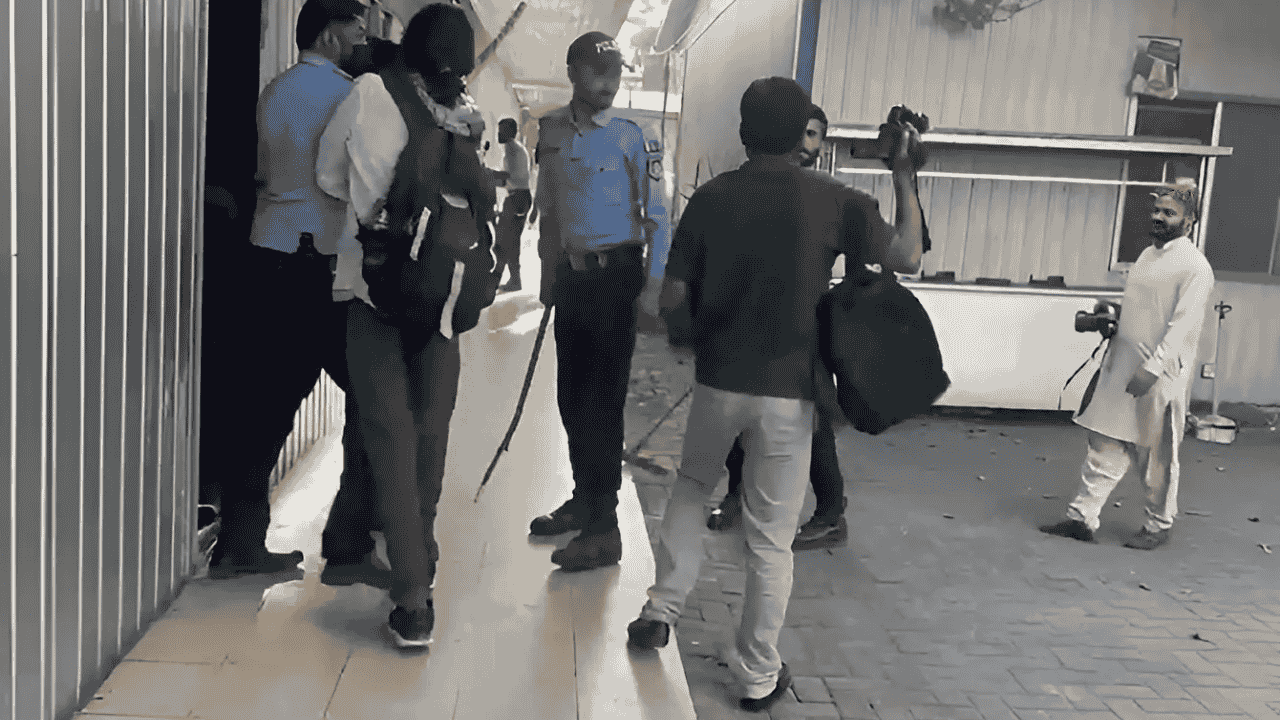By Hasnain Haider
It is a sign usually associated with authoritarian regimes—governments that cannot tolerate even peaceful protest. Sadly, what happened yesterday at the National Press Club in Islamabad is a clear example of how quickly the government is abandoning its claimed democratic standards.
It does not matter that the state minister for interior rushed to the scene to apologize “unconditionally,” or that the interior minister ordered an inquiry into the police intrusion and the violence against journalists. It also does not matter that authorities claimed the police were initially responding to a protest by the Jammu Kashmir Joint Awami Action Committee, which got out of control.
What truly concerns people is the sheer brutality captured on phones and cameras, shared widely on social media. This kind of violence is unlikely to disappear in a climate where the government is actively cracking down on free expression.
The images and reports were shocking: journalists were beaten, dragged, pushed around, their shirts torn, and their equipment destroyed. No government explanation can erase the memory of that day.
Condemnation has poured in from across the country. The Human Rights Commission of Pakistan demanded an immediate inquiry and punishment for those responsible. The president of the Pakistan Federal Union of Journalists called it “one of the darkest days” in the country’s history. The PFUJ, Aemend, and CPNE pointed out that in recent days, government-sponsored advertisements have appeared in the media labeling reporters, freelancers, and others as “anti-state.”
Media watchdog Freedom Network warned about the risks of such campaigns: instead of ensuring safety, these ads endanger journalists who already face threats, harassment, and violence. The situation is frightening.
Years of state overreach have contributed to this fast-worsening crisis. Politicians often speak loudly about press freedom while in opposition, but once in power, they keep up the rhetoric while introducing strict laws like Peca that silence dissenters.
Journalists have been detained, disappeared, or even killed. Some return later, shaken and unable to continue their work. Yet, those responsible are rarely held accountable. In these conditions, one would expect a united media pushback—but that is not the case today.
The media community is divided and struggling to fight the silence imposed on it. The need for independent journalism, defended fiercely by those who practice it, has never been greater. For many, it is one of the last hopes for saving democracy in Pakistan.

